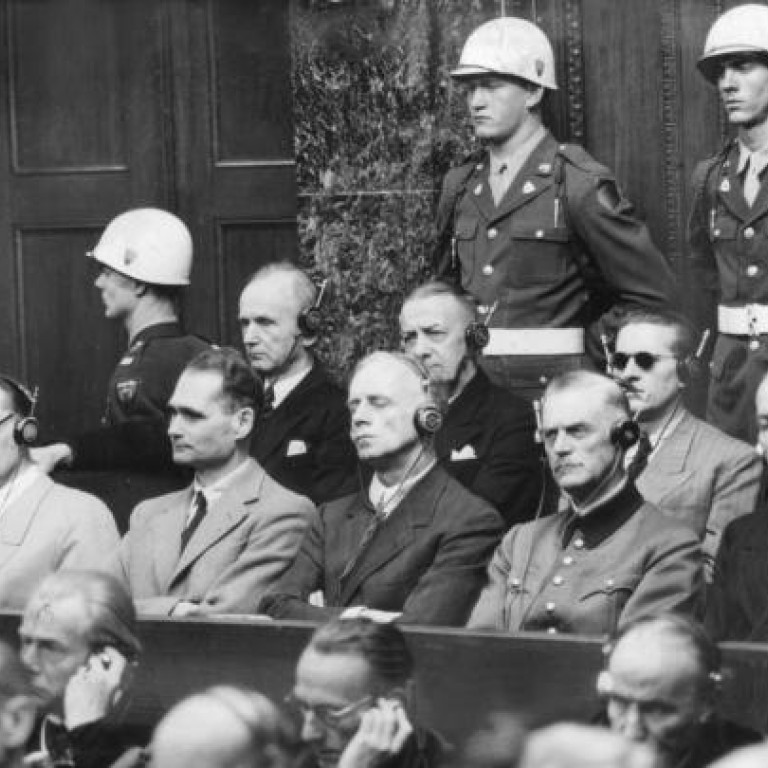
UK opposed Nuremberg trials, preferring to execute top Nazis
MI5 diary reveals push for summary executions and jail without trial
The British government opposed the establishment of the Nuremberg war crimes tribunals at the end of the second world war because it wanted selected Nazi leaders to be summarily executed and others to be imprisoned without trial, according to a contemporary account that was declassified yesterday.
Winston Churchill made the proposal at the "Big Three" conference at Yalta in February 1945, according to the account, but was overruled by Franklin D. Roosevelt, who believed the US public would demand proper trials, and Joseph Stalin, who argued that public trials possessed excellent propaganda value.
The British eventually agreed to the war crimes trials despite the misgivings of some senior government officials who believed the decision to prosecute the surviving Nazi leadership for waging a war of aggression would set a dangerous precedent.
They also feared the prosecutions would be on a par with the high-profile show trials in Stalin's Russia.
The insight into British thinking at the time that allied leaders were attempting to reach agreement over the political shape of post-war Germany is in a diary that Guy Liddell, head of counter-espionage at the British national security service, MI5, kept during the 1940s and '50s.
Codenamed Wallflowers and supposedly kept in a safe in the office of successive MI5 directors general, the wartime volumes of the diary were declassified in 2005, and redacted copies of the post-war volumes are available at the National Archive.
Liddell supported a plan drawn up by the director of public prosecutions, Sir Theobald Mathew, for selected Nazis to be "bumped off" rather than put on trial, after a commission of inquiry had concluded this was the preferred option.
On June 21, 1945, Liddell dictated a diary entry to his secretary about a visit to his office by an official from the British War Crimes Executive and representatives of the British international intelligence agency MI6 and the Special Operations Executive, looking for evidence to support a war crimes prosecution.
"Personally I think the whole procedure is quite dreadful. The DPP had recommended that a fact-finding committee should come to the conclusion that certain people should be bumped off and that others should receive varying terms of imprisonment, that this should be put to the House of Commons and that the authority should be given to any military body finding these individuals in their area to arrest them and inflict whatever punishment had been decided on. This was a much clearer proposition and would not bring the law into disrepute.
"Winston had put this forward at Yalta but Roosevelt felt that the Americans would want a trial. Joe supported Roosevelt on the perfectly frank grounds that Russians liked public trials for propaganda purposes. It seems to me that we are just being dragged down to the level of the travesties of justice that have been taking place in the USSR for the past 20 years."
In 1946, Liddell flew to Nuremberg with the deputy head of MI5, Oswald Harker, to watch the prosecution of 21 senior Nazis, including Hermann Göring ("considerably reduced in size") and Albert Speer ("probably one of the ablest in the dock").
There, he felt his fear that the tribunals would be little better than show trials had been confirmed. "One cannot escape the feeling that most of the things the 21 are accused of having done over a period of 14 years, the Russians have done over a period of 28 years."
While the tribunals are now widely seen as a defining moment in international justice, providing the basis upon which war criminals could be brought to trial, Liddell thought it unwise to prosecute the Nazis for having waged a war of aggression. "One cannot help feeling … a dangerous precedent is being created."
